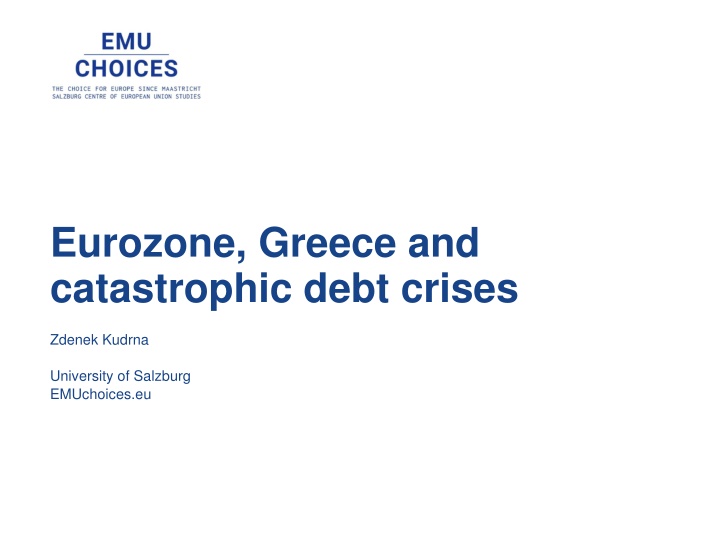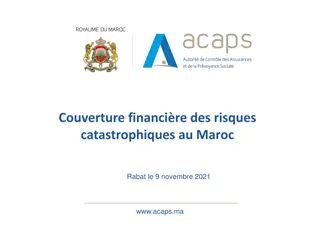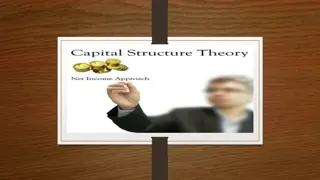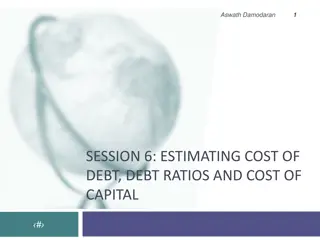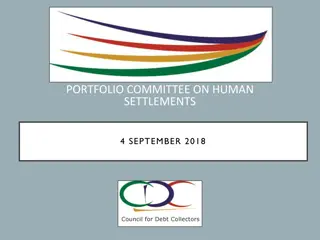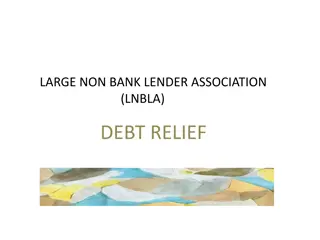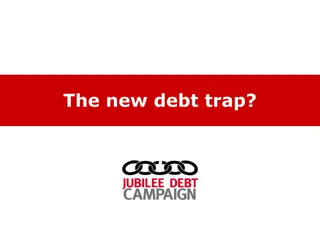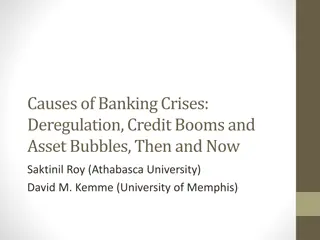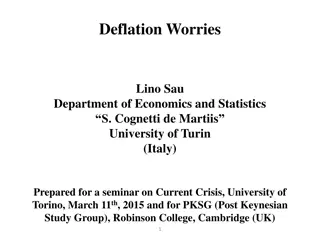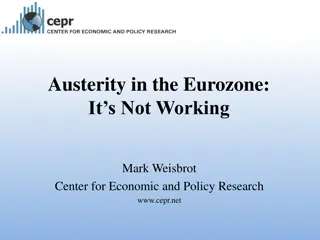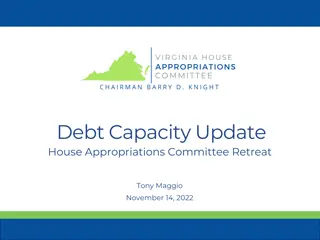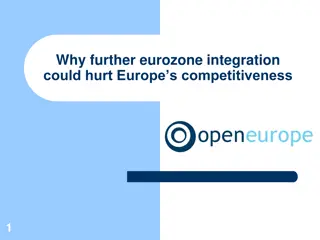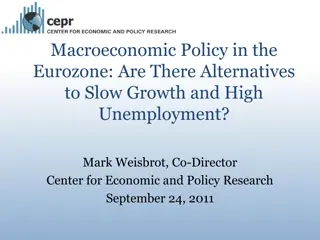Eurozone,Greece and catastrophic debt crises
Delve into the complexities of the Eurozone crisis, focusing on Greece's catastrophic debt challenges. Discover insights from Zdenek Kudrna at the University of Salzburg, as outlined on EMUchoices.eu.
Download Presentation

Please find below an Image/Link to download the presentation.
The content on the website is provided AS IS for your information and personal use only. It may not be sold, licensed, or shared on other websites without obtaining consent from the author.If you encounter any issues during the download, it is possible that the publisher has removed the file from their server.
You are allowed to download the files provided on this website for personal or commercial use, subject to the condition that they are used lawfully. All files are the property of their respective owners.
The content on the website is provided AS IS for your information and personal use only. It may not be sold, licensed, or shared on other websites without obtaining consent from the author.
E N D
Presentation Transcript
Eurozone, Greece and catastrophic debt crises Zdenek Kudrna University of Salzburg EMUchoices.eu
Euros future: current status The Euro architecture is incomplete Currency union also needs economic, banking, fiscal & political unions The Euro is stable ECB policies bought time for reforms (better economic news also help) Some macroeconomic and banking reforms were implemented, but plans for further fiscal & political union remain non-committal The Euro remains fragile Unexpected or unintended events can derail the tentative stability
The short-term future of Euro = North-South political economy game under uncertainty White swans Euro future = game between creditor and debtor states + surprises Solidarity accepted Muddling through Austerity rejected Black swans
1. Muddling through: gradual reforms Definition = minimal reforms at the last moment ECB buys time: whatever it takes + QE, negative IR, OMT, (T)LTRO Banking union: gradual bank restructuring Asymmetric adjustment: South austerity, North non-expansion Fears of break-up suppressed => gradual rebalancing through REER Lower energy prices & cheaper Euro help Price for muddling-through = lost decade in some MS challenges to extreme gradualism
2. Southern challenge: the rejection of Austerity Southern voters/governments reject austerity & reform The economic consequences of a single country (Gr)exit manageable First-round effects are reasonably understood and actors have scenarios The Euro area has infrastructure to dampen contagion (ESM, BU) BUT legal and political risks are unpredictable and thus uncontainable There are no rules for exit & redenomination of Euro contracts Misguided court decision or unilateral policy => uncontrollable chain reaction Other crises only increase the uncertainty Any EuroExit still has a potential for a Lehman II event
3. Northern challenge: the acceptance of solidarity Northern voters/government accept expansion & solidarity Macroeconomic expansion in Northern creditor countries Anything that increases demand (for Southern exports) Acceptance of any element of the fiscal union Greek debt restructuring Fiscal backstop for the banking union and common deposit insurance Cyclical adjustment insurance fund (1-2 % GDP) Some form of common unemployment insurance (2-3 % GDP) Various schemes of Eurobills /Eurobonds/Eurotreasury (risk pooling up to 60% GDP) North can shorten muddling-through & make EZ less vulnerable The election of populist parties can deepen it
Black & white swans: (un)known unknowns Low probability, high impact events Black or White swan? Brexit Russian pressure break up of UK, Spain or Belgium massive escalation of security and/or migration crises anything else than we cannot imagine yet
Prediction: sustained muddling through Muddling through: most likely scenario Delivers most minimalist & most gradual Euro reforms unless external shock forces rapid progress or break-up Political disagreement: the key obstacle Many good proposals lack political support, especially in creditor states Euro area remains stable at a fragile impasse Still waiting for a political shock to induce break-up or reform
